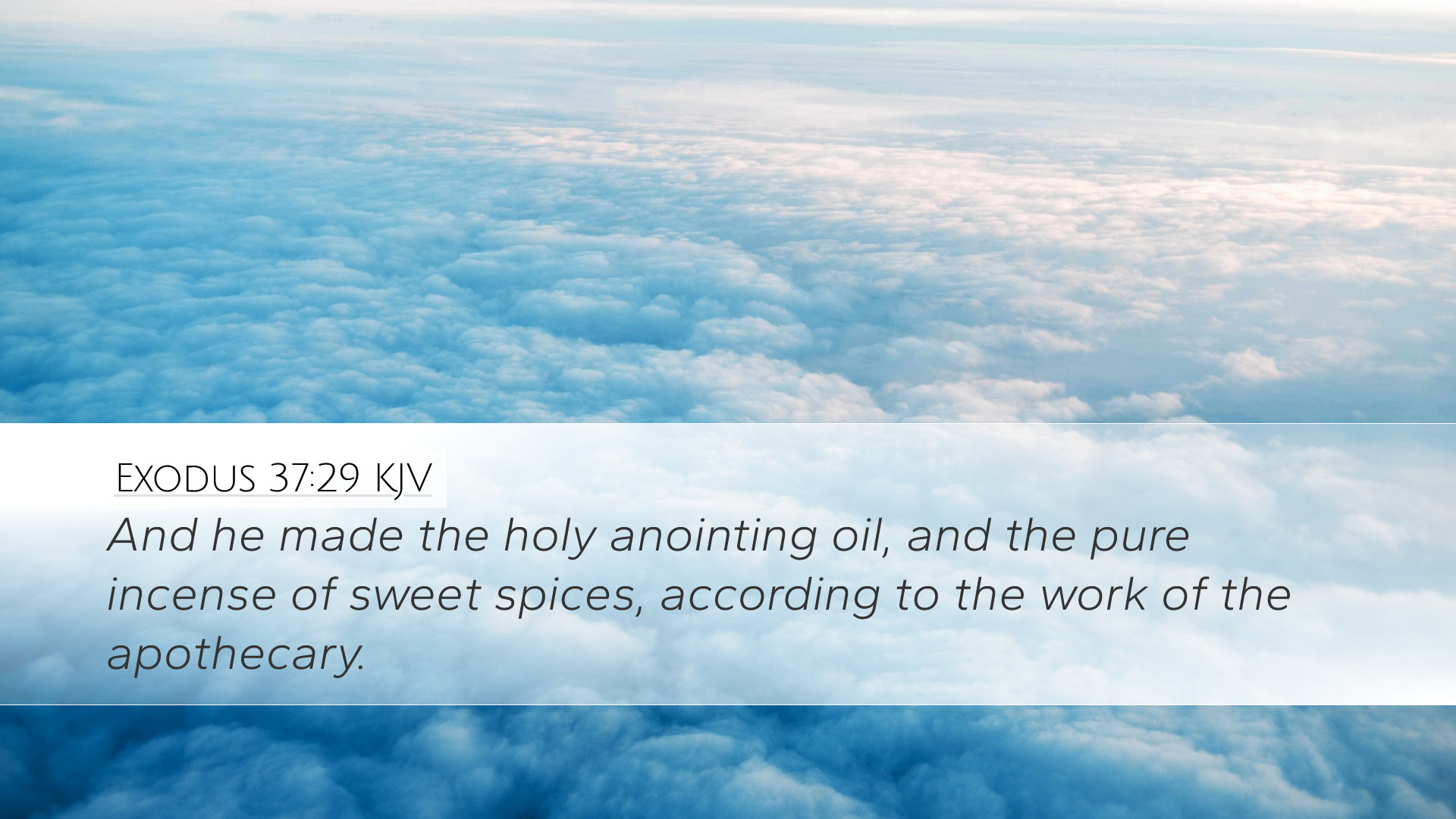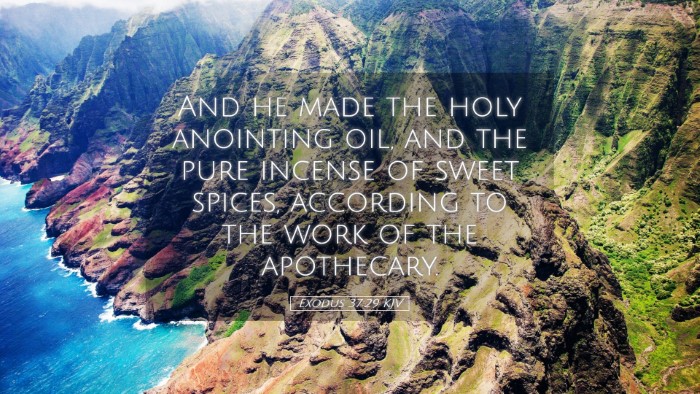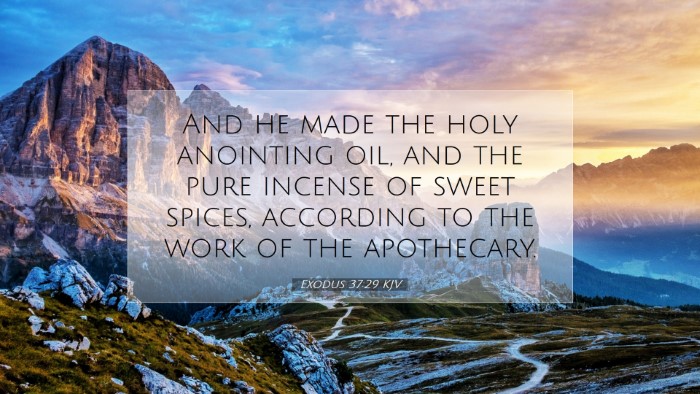Exodus 37:29: "And he made the holy anointing oil, and the pure incense of sweet spices, according to the work of the apothecary."
Historical Context
The book of Exodus describes the formative moments of Israel as they leave Egypt and journey toward the Promised Land. Chapter 37 is part of a larger section that details the construction of the Tabernacle and its sacred furniture. Verses prior to this emphasize God's instruction to Moses regarding the importance of a right relationship through rituals and worship.
The Significance of the Anointing Oil
Matthew Henry observes that the holy anointing oil represents God’s presence and approval. Anointing in the Old Testament was reserved for prophets, priests, and kings, indicating a divine selection for sacred service. This oil was not only for ceremonial use but also symbolized the empowerment of the Holy Spirit, a theme that carries into the New Testament with the anointing of believers.
Albert Barnes adds that this oil's composition embodies the unique fragrance and quality that distinguished it from any common oil. The "pure incense of sweet spices" further signals the call to holiness, suggesting that worship must arise from purity and dedication to God. The meticulous assembly of ingredients indicates that worshiping God demands both intention and care.
The Incense and Its Symbolism
Incense, as noted by Adam Clarke, was a vital aspect of the worship experience in the Tabernacle. The burning of incense is both a symbol of prayer and a physical representation of the worshipper's desire for communion with God. In this context, Clarke stresses the spiritual interpretation of the incense—drawing a parallel with prayer ascending to God, where "the sweet odors" signify the prayers of the saints (Revelation 5:8).
Furthermore, Clarke points out that the careful preparation of the incense should remind worshippers today of the preparation required in approaching God. It is not only a spiritual act but one that calls for reverence, care, and understanding of God’s holiness.
Lessons for Worship and Ministry
In considering this passage, Matthew Henry encourages believers to understand that true worship is marked by anointing and devotion. He points out how the anointing oil signifies a preparation for God’s sacred work. Pastors and church leaders are reminded of their role in facilitating worship that invites God's presence, indicating the necessity of spiritual preparation in their ministries.
Albert Barnes highlights the danger of treating the holy with contempt. The precise instructions for the ingredients of the oil and incense reflect God's desire for purity and intention in worship practices. This serves as a warning against the complacency that can occur within church communities—a reminder that worship should be a profound and intentional act, not a routine or tradition devoid of meaning.
Clarke’s insights lead us to value the importance of communal and individual prayer. Just as the incense was an integral part of worship, so too should prayer be central in the life of the church. Each member's heartfelt prayers are precious to God, producing a fragrant offering that pleases Him.
Theological Implications
This passage also holds rich theological implications concerning the character of God. As highlighted by Matthew Henry, the anointing oil symbolizes God's covenant with His people, affirming that they are set apart for service and worship. The divine choice reflects God's grace as He equips individuals for His work. Pastors and theologians are challenged to reflect on their anointing and how they shepherd their congregations.
The incense brings additional depth, suggesting God's desire for personal relationships with His people. As noted by Adam Clarke, the prayerful act of burning incense illustrates that God desires communication and connection, transcending mere ritual to reach the heart of worshippers. This teaches congregational life to prioritize both prayer and the sacredness of worship space.
Conclusion
In conclusion, Exodus 37:29 serves as a profound reminder for each believer engaged in worship. The holy anointing oil and pure incense call for a deeper understanding of what it means to serve and communicate with God. Lessons derived from public domain commentaries reveal that worship is not just an act but a sacred encounter with the Almighty. It charges pastors and worship leaders to curate an environment where true worship can flourish—rooted in reverence, preparation, and a communal spirit focused on glorifying God.


